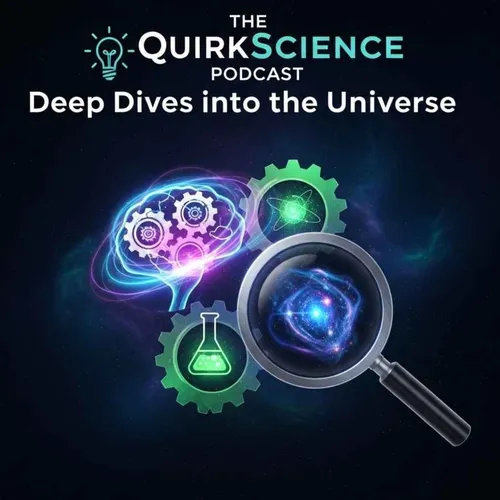The QuirkScience Podcast Ep. 12: The Conscious Universe: Is Your Coffee Mug Aware?
- Author
- Daniel Estrada
- Published
- Sat 06 Sep 2025
- Episode Link
- https://shows.acast.com/the-quirkscience-podcast-deep-dives-into-the-universe/episodes/68b497d4993d10acb94e13e3
Why do you have an inner life? It’s a question so fundamental we barely think to ask it: why does the firing of neurons in your brain feel like anything at all? This is the “hard problem of consciousness,” and our traditional answers are failing. The idea that consciousness magically emerges from non-conscious matter seems like a miracle, while the idea of a non-physical soul interacting with a physical body seems to defy the laws of physics.
This is where a third, mind-bending option enters the stage: panpsychism. In this episode, we explore this ancient but scientifically resurgent theory. Panpsychism isn't the silly idea that your coffee mug is pondering its existence, but the radical proposal that consciousness, in some extremely basic, rudimentary form, is a fundamental property of matter itself, woven into the fabric of reality alongside mass, charge, and spin.
We trace this idea's incredible history, from ancient Greek philosophers to its modern revival, which seeks to complete physics by explaining the missing "intrinsic nature" of matter. We’ll also connect it to cutting-edge neuroscience through concepts like Integrated Information Theory (IIT), a controversial attempt to mathematically measure consciousness in any system.
But panpsychism faces its own colossal hurdle: the “combination problem.” How do billions of tiny, simple "flickers" of experience in your brain's particles combine to create the single, rich, unified consciousness you are experiencing right now? Join us as we explore the theory that could solve the greatest mystery in the universe, and what it would mean for ethics, AI, and our place in a cosmos that might be aware.
Hosted on Acast. See acast.com/privacy for more information.
